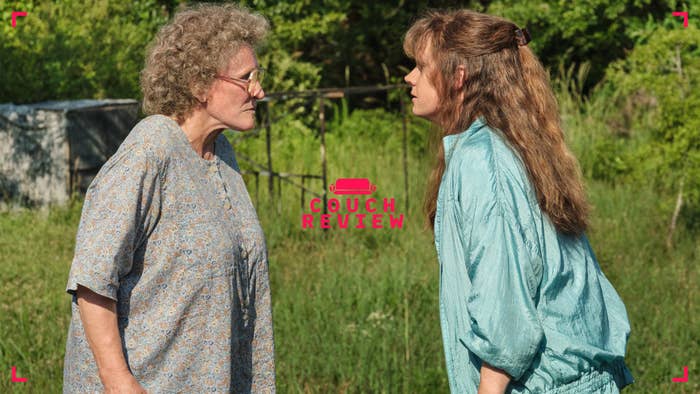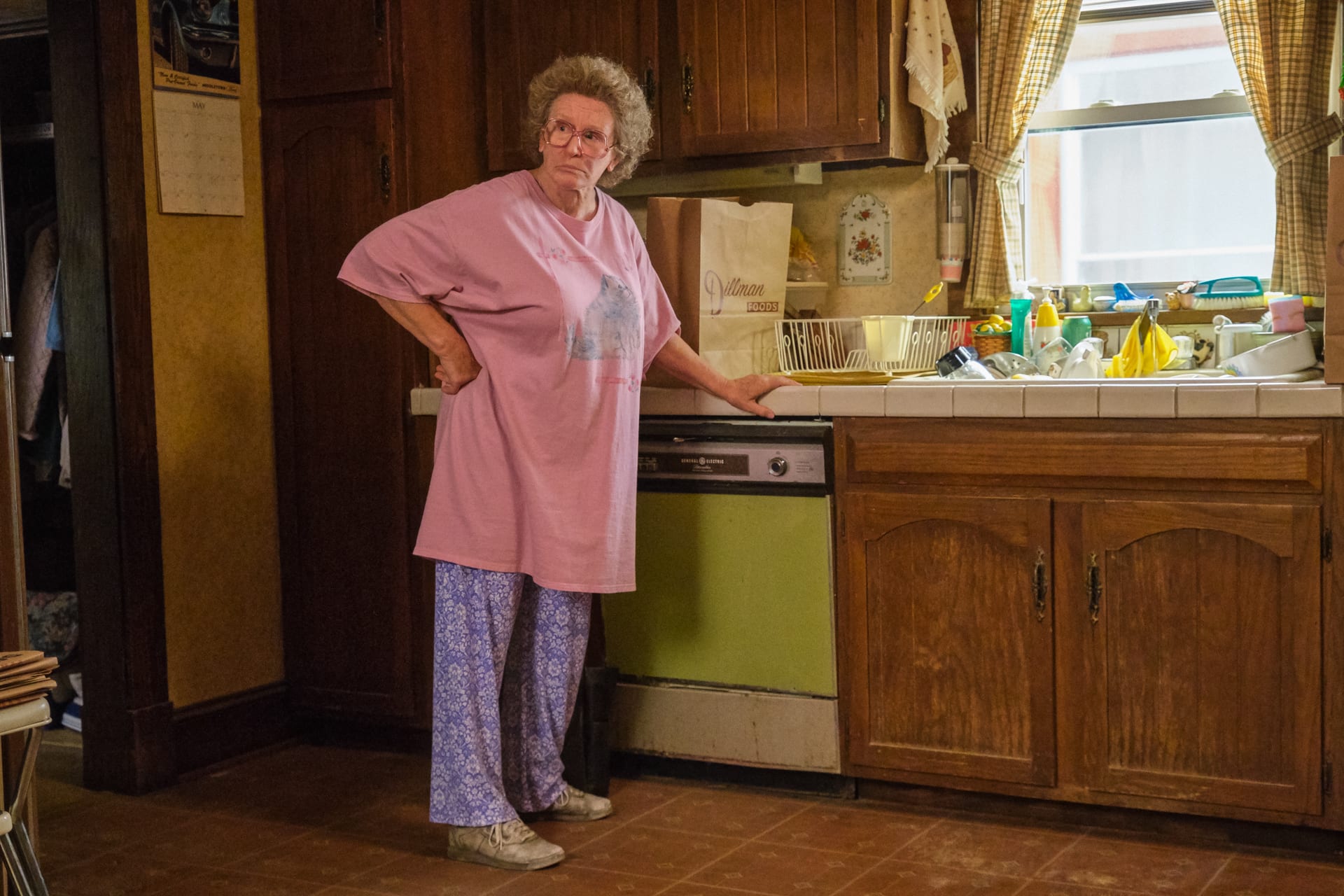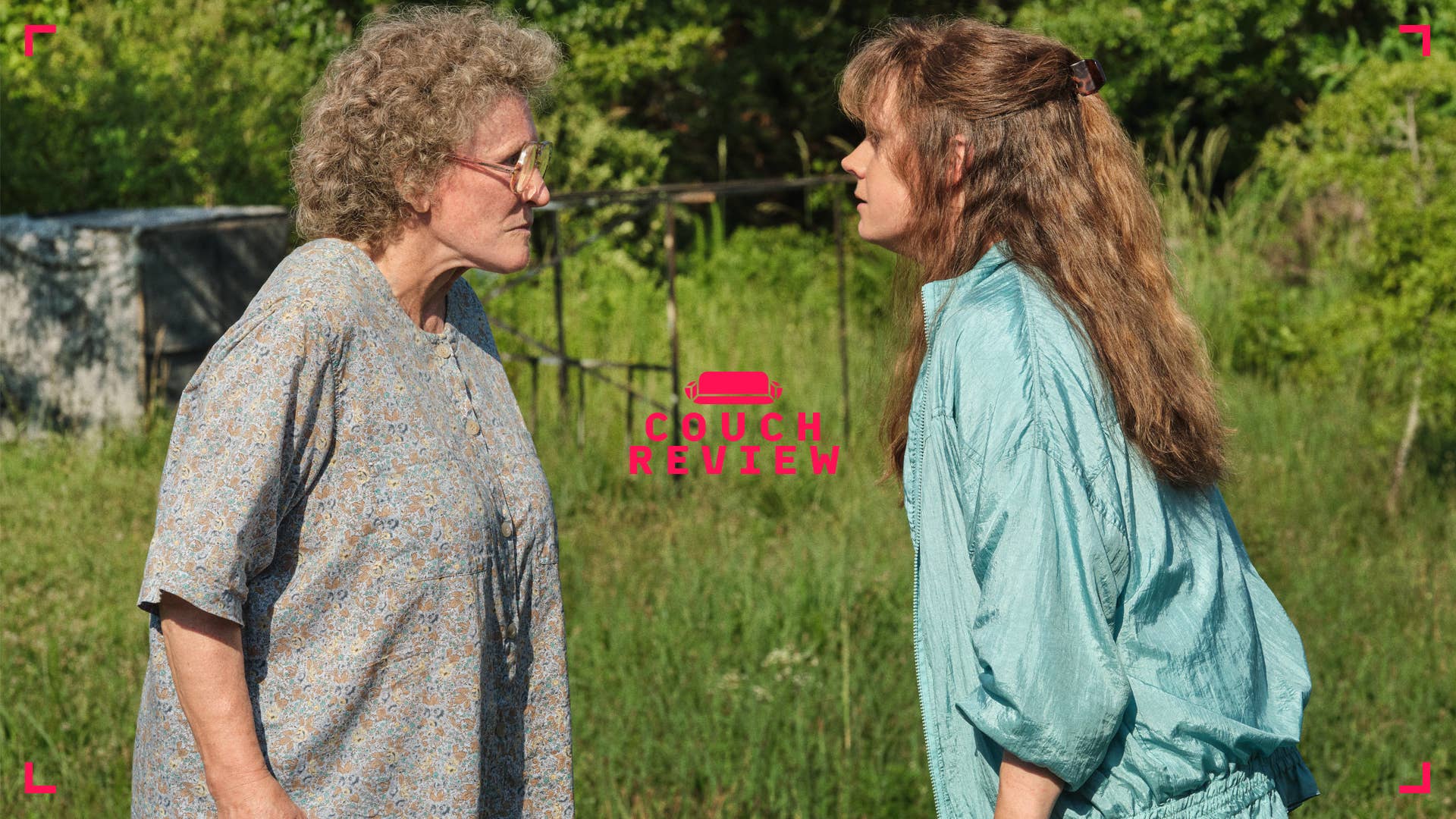
In the hit animated comedy American Dad, there is an episode where Roger purposely directs a film that he believes is guaranteed to win multiple Oscars. The film (titled Oscar Gold, to really drive the point home) seems engineered to pull on the heartstrings of critics and audience members alike. Ron Howard’s Hillbilly Elegy is a real-life example of that fictional experiment. With stars Glenn Close and Amy Adams at the forefront, and J.D. Vance’s bestselling memoir as its source, Hillbilly Elegy’s main purpose seems to be wringing emotion out of both viewers and critics.
However, despite the film’s attempts at pathos, Netflix's Hillbilly Elegy is a convoluted mess of a story. Told through flashbacks, we see author (and executive producer) J.D. Vance (Gabriel Basso) as a current law student at Yale. J.D. is a tenacious worker and student, trying to secure a summer job. However, as he goes on countless interviews and dinners (including an over-the-top scene where he is overwhelmed by silverware), J.D. gets a call from sister Lindsay (Haley Bennett) that their mother Beverly (Amy Adams) has overdosed on heroin. J.D. makes the ten-hour trip home immediately, kickstarting the film.
One of the movie’s key failings is that you are never sure who the movie’s center is. Ostensibly, J.D. is the hero, as we see his ascent to Yale from his days growing up in Appalachia. However, during flashback scenes, you see his interactions with Beverly and his Mamaw (Glenn Close, the film’s undeniable MVP). The film cuts back and forth from J.D. trying to get Beverly into rehab to his own upbringing, highlighting J.D.’s unusual upbringing in Middletown, Ohio. The film suffers from this juxtaposition, as you are dealing with J.D. and his journey one moment, Beverly’s descent into addiction the next.
We see via flashback Beverly’s descent into addiction. We also see via flashback her volatile behavior towards Lindsay and J.D. even before that (she hits both of them, and also threatens to kill a pet dog for urinating on her carpet). Dual timelines can be an effective story trope, but they fail to deliver here. You see very little growth on J.D.’s part, and each flashback sequence follows a similar formula: Beverly does something awful and the rest of the family reacts to said awful thing. The one thing the film does well is showing how J.D., while trying to make a name for himself beyond “the holler,” is forever haunted by his past.

Close and Adams do their best with the source material, yet the film as a whole is full of tired stereotypes (J.D. is literally almost brought to orgasmic bliss upon eating a fried bologna sandwich, something “that he can’t have” at Yale, for example.) You see glimpses of Beverly as an interesting, engaging character (an academic starlet, a dedicated nurse). You also see the two worlds in which J.D. finds himself; the erudite snobs of Yale vs. the “good-ol-boys” from home. However, the film doesn’t explore these themes to an effective degree.
There is also a love story, for some reason! J.D.’s girlfriend Usha (Freida Pinto) appears, offering consolation to her “beloved” on his journey. If it is possible for two characters to have zero chemistry whatsoever, they certainly try their best here. (J.D. and Usha are married in real life, yet their story doesn’t really fit in here at all). Hillbilly Elegy is an obvious attempt to win critical acclaim and awards. However, it suffers from a lack of characterization and stereotypes. There is an unbelievable film somewhere in here, one that illustrates the terror of the opioid crisis, intergenerational trauma, and the long-lasting stain of poverty. Hillbilly Elegy is not that film.


